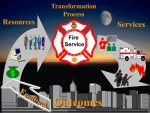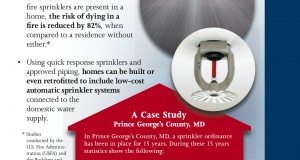So how can we in the Fire & EMS profession more proactively “capture” such knowledge before it “walks out the door” with the next retiree? Let’s take a closer look at some of our “old and reliable” information management tools: policy, procedure, and processes. Frequently, we use these terms interchangeably, but they are not synonymous at all. However, if we understand how the “fit” together, we will find that they can serve as powerful tools to help transfer organizational knowledge from one generation of members to another.
Read More »Tag Archives: thought leadership
Diversity: The Elephant in the Room
Every time you participate in off color conversations, it reflects the dark side of yourself. Every time you laugh, nod, agree, insert your two cents, sit quietly uncomfortably reading your iPhone HOPING IT ENDS SOON, looking at the speaker or simply clearing your throat you are participating in the conduct that is unbecoming of a firefighter. Did you know that?
Read More »Fire Department in Danger After Levy Fails
As Dr. Phil says, “It’s time to get real!” Fire departments must stop trying to provide a model of fire protection—one that’s predicated on saving lives and property through the reactive deployment of firefighters who implement an interior fire attack the majority of time—when the department does not possess the resources to do so safely, effectively, and efficiently according to accepted standards and practices, e.g., NFPA 1710 or NFPA 17.
Read More »Why Don’t We Tell Them?
In the absence of factual information, most people will believe whatever they hear or will Social media mind mapmake up their own version of reality based upon their past experiences. In today’s “informational overload” world there are more than a few ways for people in a community to know what the men and women of their fire and EMS department are “up to”, both good and bad. Successful departments are those who've embraced social media in a proactive way to engage their communities in two-way communication.
Read More »Thoughts on Changing Fire Service Culture
Changing our culture? I saw this piece from Chief Robert Avsec on LinkedIn and I couldn't help myself so I posted my comments on the LinkedIn Group. Chief Avsec (the author) contacted me and asked me to use my comments as a Guest Blogger, so here I am.
Read More »NFIRS Data: Using Thought Leadership Media
Robert - this article is right on track. I've personally been involved in using NFIRS data to justify the need for new Stations, Rigs and Personnel. It was response time analysis that allowed us to show areas of the city where we were falling short. That data helped convince the politicians and taxpayers, both.
Read More »Tampa II: Food-for-Thought 4 “Get Away Day”
I'm confident that the issue of fire prevention has been discussed at length as it should be: if no fire occurs or it's extinguished by an installed fire sprinkler no firefighter need be injured or killed in the line-of-duty. So here's my blog repost for your and those folks at Tampa 2 on "get away day", Children Don’t Cause Fires, Adults Do
Read More »Reader Comments: Children Don’t Cause Fires, Adults Do
We focus on the young likely because its easy. But, what we Fire Prevention Demoprovide in education is often lost in an overriding effort to entertain them. Further, without reinforcement of the fire safe/prevention message in their home environment, any value is soon lost to the parent's daily example/attitudes towards fire safety.
Read More »Children Don’t Cause Fires, Adults Do
The behaviors of adults in the USA account for 78 percent of the preventable residential fires. So why do the vast majority of fire prevention educations that Fire and EMS departments deliver each year target children? If we’re looking to significantly reduce the following types of fires, why don’t our programs focus on adult behaviors?
Read More »Changes and Trends in the Fire Service
Regardless if the changes arise from our people (generational differences) or new technologies or new information that changes the way we view strategy and tactics, it all comes back to how we lead and manage, doesn’t it?
Read More » Fire & EMS Leader Pro The job of old firefighters is to teach young firefighters how to become old firefighters!
Fire & EMS Leader Pro The job of old firefighters is to teach young firefighters how to become old firefighters!






